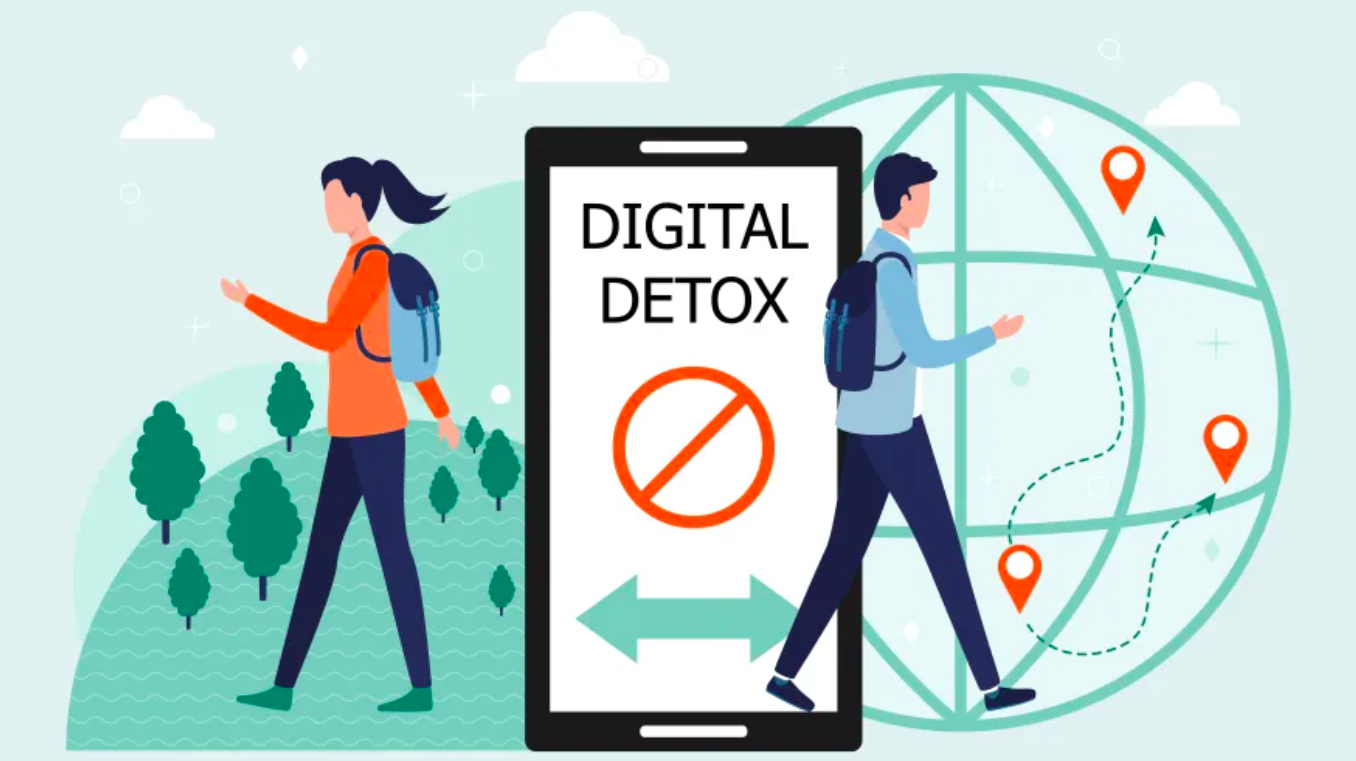We are living in a digital age. With applications like TikTok, YouTube, Twitter, and more, trends are constantly coming and going. Although the digital detox trend might be here to stay, as it has become an increasingly popular millennial movement.
A digital detox is no new treasured insight, at least not to Facebook users who in 2012 made a collective attempt to break free from the taunting notifications of the app for several weeks. Although this moment was named as “media refusal” or “social media rejectors,” it was nothing short of this modern day act of improving well-being.

Aleksei Naumov/istock
Today, a digital detox can be seen as a trend increasingly gaining awareness by social media users, particularly on the app TikTok. The terms “digital” and “detox” might speak for themselves, but there’s no way of telling what goes on behind the scenes when users actually attempt to take one.
The term “detoxification” is defined as the process of removing toxic substances or qualities and, in this case, those substances can be seen through an overload of information on social media, privacy issues, and even shortened attention spans. While personal impacts like these are common in almost everyone who uses social media, this is only surface level.
According to the National Library of Medicine, the increasing use and evolution of information technology has prevalent impacts on society, especially in the workplace. For instance, individual professionals and knowledge workers are exposed to digital devices during the peak of their working hours.
Not to mention that digital entertainment applications are designed to persuade and distract, clearly indicating that screen time can “entail severe consequences to the well-being of individuals,” says the National Library of Medicine.
For these reasons, a considerable amount of social media users have been using the terms “digital,” or even “dopamine detox” as a way to describe digital device abstinence, which is believed to bring on a quick and easy dopamine release in the brain when in use.
As a trend and movement, digital detoxing challenges those to disconnect from the bombardment of notifications, emails, or even the unrealistic standards we set for ourselves in comparison to others – overall, the headache of screen time and scrolling.
While sacrificing your digital needs, you might also explore different, creative ways to enjoy life. Users’ understanding of the trend’s virtues might find that spending time outdoors, reading a book, or simply seeking healthier tech-habits remind them of what it means to live productively, and not defined by late night online shopping sprees or the daily notifications of new gossip in group chats.
With millions of people posting their lives, opinions, and interests across a number of platforms, it can be difficult to keep up with the neverending filtered content of unattainable beauty standards or lifestyles.
From flawlessly arranged house decor and furniture to modelesque bodies, or maybe a several thousand dollar trip to Bora Bora, it’s clear that apps like TikTok and Instagram advocate a “culture of comparison” which has lead to depression, body-image issues, and anxiety in users, according to Medium.
If you find yourself experiencing the downfalls of technology use more than its simple pleasures, a digital detox might be what you’re looking for. Although, according to some researchers, the results of a digital detox have yet to meet users’ expectations, as we are widely dependent on our devices.
While the results of a digital detox are still generally unclear regarding its purpose, Cleveland Clinic Health Essentials say otherwise. Psychologist Kia-Rai Prewitt explains that taking a break from social media or technology as a whole can be a good way to see whether it’s holding you back in specific areas of your life, all while gaining benefits surrounding sharper focus, social interactions, less stress and more control over your time.
Generally, too much information all at once can cause stress, therefore polluting multiple areas of life such as socializing, or the thresholds of focus and concentration on everyday chores. With frequent notifications, Dr. Prewitt explains how the constant need of checking phones deters those from their tasks at hand, real world interactions, and the valuable time we seem to have so little of.
While this trend is also referred to as a “dopamine detox,” Peter Grinspoon from Harvard Health Publishing advises those not to confuse a natural occurring chemical as something you can simply stay away from.
According to Grinspoon, dopamine is one of the body’s neurotransmitters, and is involved in the sense of reward, motivation, learning or pleasure we get from gratifying activities. While the chemical does considerably increase in response to over stimulating activities, such as screen time, it does not decrease when abstaining from it.
The fact that dopamine is strongly associated with addictive properties might be why social media has made such an effort to spread around this opportunity of giving you and your brain a break from unhealthy stimuli. Although abstaining from social media might allow for stress and anxiety reduction, it doesn’t necessarily rewire your brain chemicals.
Research by Oxford University has also found no evidence suggesting the correlation between digital device withdrawal and improved well-being. In fact, participants in their study found that time spent “digitally detoxing” did not exactly result in time spent engaging in more productive, meaningful activities.
Unfortunately, this trend will not save you from the many downsides of technology use, as it’s practically impossible to stay away from the things that help organize our lives, communicate with others, and even put cherishable memories on pause.
Whether or not digital detoxing has brought down levels of depression and anxiety, or created more room for meaningful life participation, the objective lies in the user.

